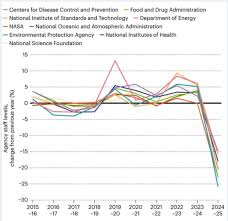Straws in the Wind
Businesses have intensified public support for climate action. That could presage a major shift in climate politics.
In the past few weeks, there’s been a notable growth of business support for climate action. A letter from the CEOs of 300 hundred major companies called for a 50% cut from 2005 carbon emissions by 2030. The companies ranged from the utilities to tobacco to investment management. Google, McDonalds, Walmart, and Philip Morris were among the signatories. The reasons the companies gave for this target were many:
- Catalyzing a zero-emissions future,
- Spurring a robust economic recovery,
- Creating millions of well-paying jobs,
- Building a strong, more equitable, and more inclusive American economy.
- Guiding the U.S. government’s approach to more sustainable and resilient infrastructure, zero-emissions vehicles and buildings, improved agricultural practices, and durable carbon removal.
- Inspiring other industrialized nations to set bold targets of their own.
At about the same time, the Bank of America announced that it was making a huge investment in sustainable financing:
“Bank of America said on Thursday it will deploy $1 trillion for its environmental business initiative to push for green finance by 2030, expanding on the $300 billion it had announced for the same project in 2019. The second largest U.S. bank said the latest announcement puts its total commitment to sustainable finance by 2030 at $1.5 trillion.”
Goldman Sachs had previously announced it was deploying “$750 billion across investing, financing and advisory activities by 2030 and bringing our commercial expertise to help our clients accelerate climate transition and advance inclusive growth.”
Some of these commitments may be real, others may just be greenwashing. In any event, the question is why these major companies think it’s to their advantage to take these stances, given that Republicans has staunchly dismissed the need for serious action on climate change. Why get in the middle of a divisive public issues?
Some conservatives are sure to complain that the CEOs are either flaky liberals or afraid of being politically incorrect. Both seem like dubious explanations. I don’t think people get to the top of the corporate ladder by being flakey or afraid of social disapproval. They get there by an intense focus on making money for shareholders.
I think there are likely three reasons for this corporate embrace of carbon action. First, many investors, employees, and consumers care about climate change. Businesses have an interest in keeping them happy. Second, I think, these CEOs see climate action as advantageous to their companies, both because it will create economic opportunities and because climate change creates serious economic risks. Third, they see climate action as inevitable and want to get on the right side of upcoming changes.
However, you explain it, it seems to me that these corporate announcements are if nothing else signals of a growing wave of support for climate action. Democrats who dream of going big on climate policy may be riding a rising tide.
Reader Comments
2 Replies to “Straws in the Wind”
Comments are closed.







Some initial indications do not bode well. How much will be real investment in actual clean energy and how much in offsets remains to be seen. Microsoft reportedly contracted with 12 entities to purchase offsets around the world while lowering their internal carbon price from $15/ton to $5/ton.
The EU evaluation of the Kyoto Clean Development Mechanism found over 80% of projects could not establish additionality.
I hope the academic community as well as the environmental media get serious about analyzing what is going on in voluntary offsets. Lara (Berkeley) seems alone in researching this is a serious manner.
The “advantages” and “opportunities” are in avoiding pollution controls, which is cheaply done by capturing regulatory agencies and fighting “onerous” environmental rules and enforcement. There is no evidence that big polluters are now seeing the light and going “Green”. Green advertising is not “Green”. See eg Planet of the Humans.